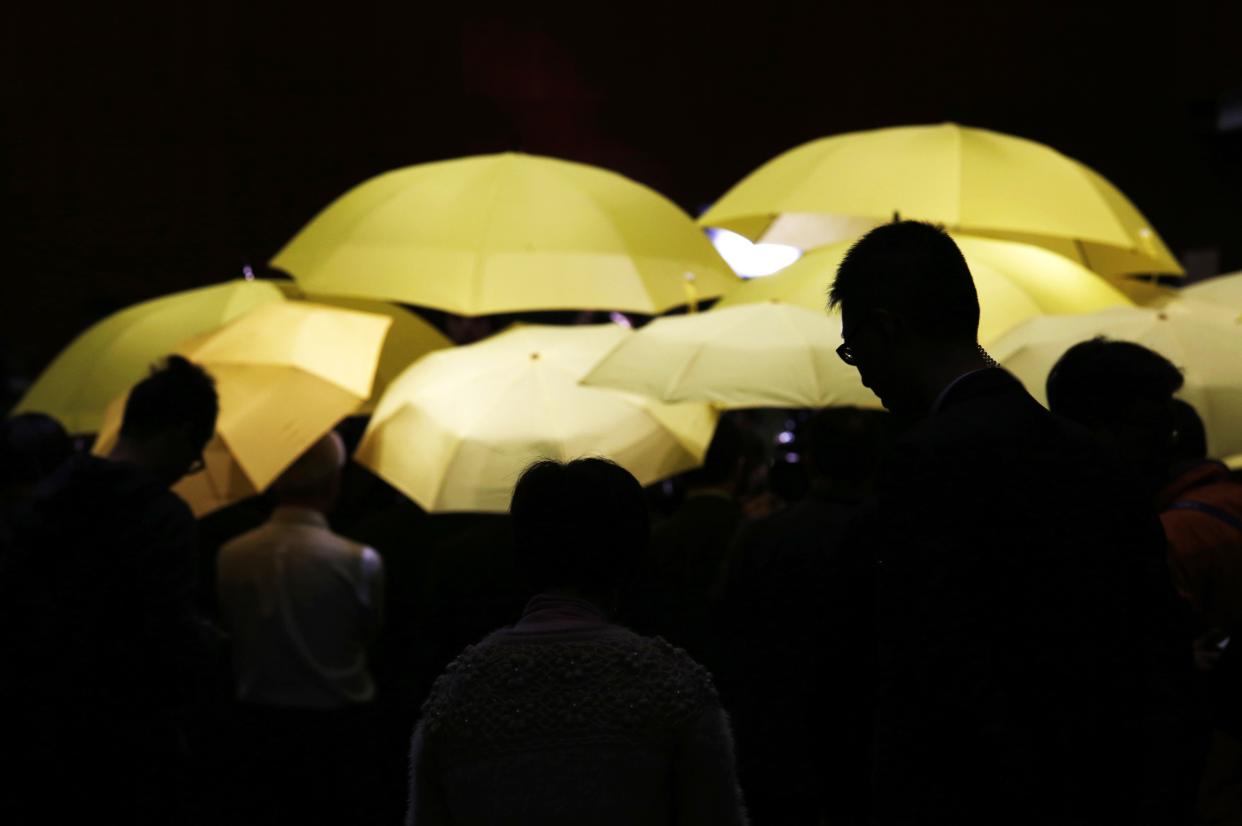Could an app from the Umbrella Revolution be used in a presidential election?
Protesters used FireChat during the Hong Kong uprising. Now the company is looking to expand into U.S. politics

WASHINGTON – At every political conference with a vendor hall, there are companies trying to sell politicians and campaigns on new technologies. One of them this year has sparked some serious interest: FireChat, the application used by protesters during the Umbrella Revolution in Hong Kong.
The app maker says it is in talks with multiple potential presidential candidates about using FireChat to communicate directly with supporters during potential campaigns. A Republican operative based in Silicon Valley and unaffiliated with any campaign said that Sen. Rand Paul, R-Ky., and Sen. Ted Cruz, R-Texas, are the most interested, though a Cruz aide said there was “nothing on our end to report.” Aides to Paul did not respond to email inquiries.
FireChat was used in Hong Kong last fall by protesters who were worried that the Chinese government might shut down their access to the Internet. A messaging service that is capable of operating independently of the Web, FireChat creates communications networks among devices that are between 40 and 70 yards from one another, through their wireless and Bluetooth signals. The network’s physical reach is limited only by the number of users in the chain.

But FireChat wants to move beyond its status as an off-the-Web resource to a messaging service that can be used on the go, and online, to create massive chat rooms in which campaigns can communicate directly with their supporters over their smartphones.
“You can get 100,000 people into a live chat session in the matter of a few hours. They don’t need to be connected over Facebook or Twitter. They can just follow a link,” said Christophe Daligault, the chief marketing officer at Open Garden, the company that developed the FireChat app.
FireChat thinks its service could be used to mobilize supporters into action at key moments, the company told Yahoo News.
“The frustration [politicians or organizations] have with Facebook and Twitter is that with social media, you need to program and think about what you’re going to talk about, and at the end, you reach at best 10 percent of your audience,” Daligault said. “The way you reach them is on a feed that you share with a whole bunch of other inputs that could be distracting.
“With FireChat, you can create your own live discussion space. Call it a chat room for a lack of a better word. It’s as if you were on an iMessage session except rather than having two or three people you already know, you could be on with 500 or 5,000 people and have a live discussion within that space.”
Such a tool could come in handy during a primary or caucus contest, as campaigns seek to get people to the polls.
FireChat’s off-Web capability could also come in handy. Campaign staff could use it to talk to one another on a plane if there was no Wi-Fi, or at an event where they are spread across a location with bad cell service. In the event that candidates ended up wrangling for delegates at a state convention or other event where a large number of people can clog access to the nearest tower, organizers could use FireChat to issue moment-by-moment instructions to supporters about how to vote and whether to organize a protest or demonstration, among other things.
Open Garden sees politics as a major opportunity for FireChat growth. The firm, based in San Francisco, has sent a representative to two recent political events — a Lincoln Labs tech and politics seminar and the much larger Conservative Political Action Conference — to drum up interest.

“Just like many startups, we are focused on growth and not on monetization. We raised $13 million to date so we have runway. Our focus is really growth. We look at elections this year — not just in the U.S., but in Spain and Mexico and other countries,” Daligault said. “And for us, we’ve seen one leader tell people get on FireChat because they want to have direct communications right away. It makes a lot of sense.
“We’ll worry about the monetization later,” he said.
Since releasing FireChat a year ago, Daligault said that Open Garden has raised money from venture capital firms such as August Capital, Firebolt Ventures, FuturePerfect Ventures, Kima Ventures, Tseung Kwan Ventures and Sherpalo Ventures, which is run by Ram Shriram, an early investor in Google and a Google board member.
One of FireChat’s board members is Howard Hartenbaum, a partner at August Capital and an early investor in Skype.




